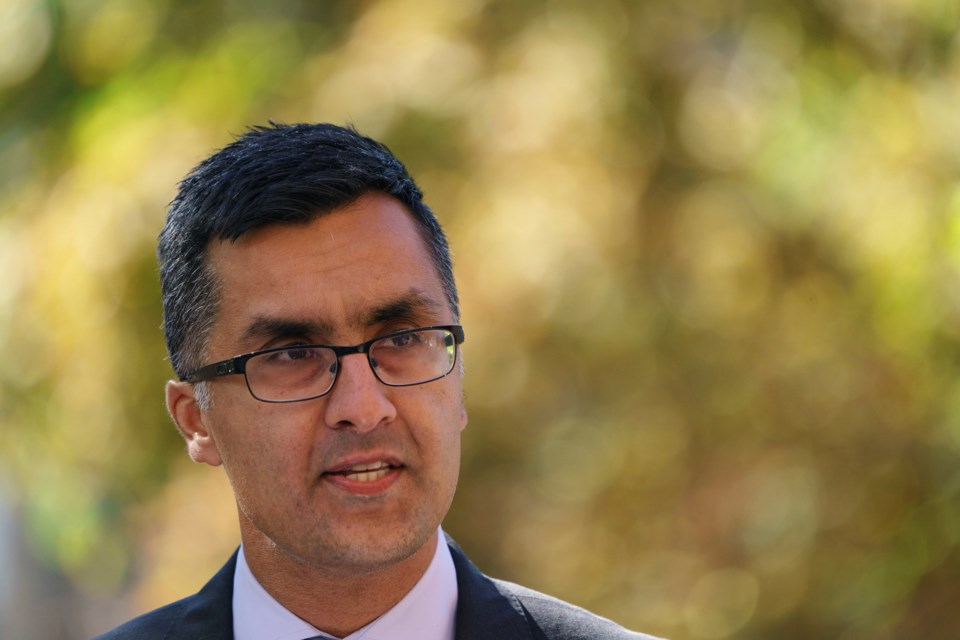Liberal health critic Adil Shamji wants the province to ban private-pay nurse practitioner clinics instead of waiting on the feds to do so.
His private member's bill, to be tabled Wednesday afternoon, would do just that. The Keeping Primary Care Fair Act would also increase penalties for breaking the law. Shamji shared an advance copy with The Trillium.
As primary care shortages persist in Ontario, private-payer nurse practitioner clinics have come under scrutiny for openly charging patients fees to access primary care services normally provided by a family doctor.
Though charging for services covered under provincial medicare programs is illegal under the Canada Health Act, some nurse practitioners say they're exempt because they're not allowed to bill public insurance. Not everyone agrees with that interpretation.
Last month, federal Health Minister Mark Holland said he'd soon be issuing a long-awaited clarification letter to crack down on private-payer health care.
Shamji would prefer not to wait.
His two-page bill would add a section to the Commitment to the Future of Medicare Act — Ontario's interpretation of federal health law — that bars nurse practitioners from accepting private payments for publicly insured primary care services, specifically those that nurses are publicly paid to deliver when they work in family health teams or at community health clinics.
Fines for individuals who break the law would double from $10,000 to $20,000. If they fail to report a colleague for breaking the law, they'd be hit with a $2,000 fine, up from $1,000. And corporations would get dinged for $50,000 instead of $25,000.
In the six months after it passes, the bill would allow for patients charged by these clinics to be reimbursed by the province.
"We don't need a letter," Shamji told The Trillium in an interview. "It's a lot faster to just write the legislation ourselves, which I suspect is what (Health Minister) Sylvia Jones would have to do after she receives the interpretation letter."
Jones has argued that closing the "loophole" on her own could lead to an exodus of nurses to other provinces that allow private clinics, at a time when Ontario is in desperate need of health workers.
Excuses, Shamji said.
There are at least 25 private nurse practitioner clinics operating in Ontario. Shamji said he would like the government to publicly fund them.
"That shouldn't be hard at all," he said.
"The reality is that there's something that can be done right now by the provincial Minister of Health, and she is, in my opinion, refusing deliberately to act," he said.
Two other Conservative-led provinces, Alberta and Saskatchewan, have taken steps to bring nurse practitioners under the public system, he noted. Ontario also funds some public nurse practitioner clinics that do not charge patients. Shamji's bill would not affect those.
As the Ford government expands publicly funded, privately delivered health care, Shamji said he's convinced Jones has "a deliberate privatization agenda that is communicated, if not by her words, certainly by her actions."
Nurses aren't the only ones charging for primary care. Shamji said he's among those questioning why the province allows so-called executive health clinics to charge for the same services.
In his view, those clinics are operating outside the law already — no legislative amendments needed.
"No one's really been looking at it seriously before," he said.
"It requires the Ministry of Health to act."
Shamji, also the Liberal housing critic, is no stranger to private member's bills, which are normally doomed under a majority government. Of all his bills, he said this is the one he most hopes passes into law.
"Personally, perhaps I'm biased, but I think this is landmark legislation. This is the first time that nurse practitioners are ever getting mentioned in the Canada Health Act or the Commitment to the Future of Medicare Act," he said.




